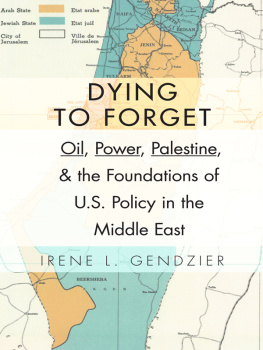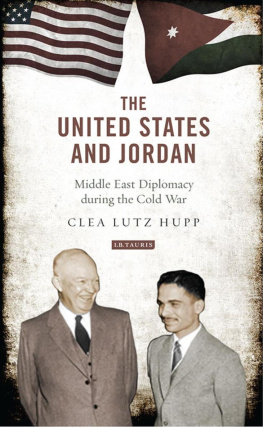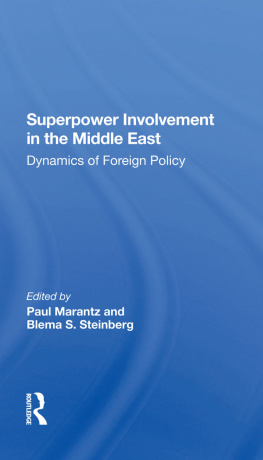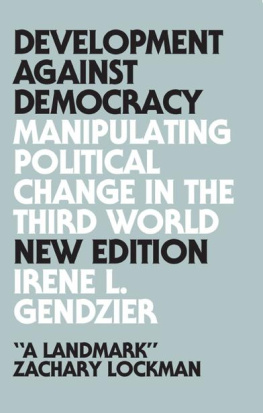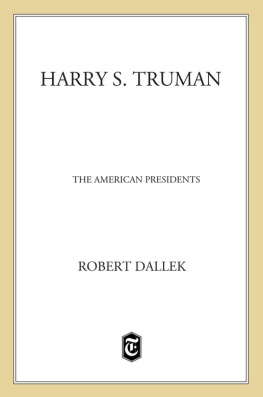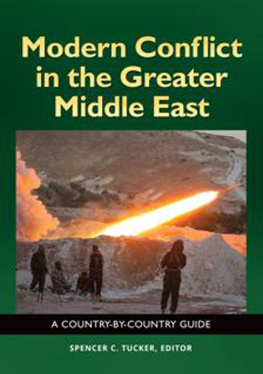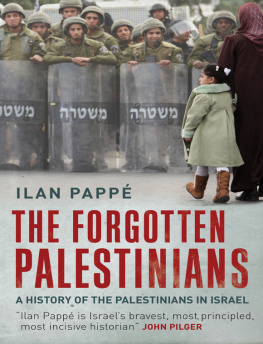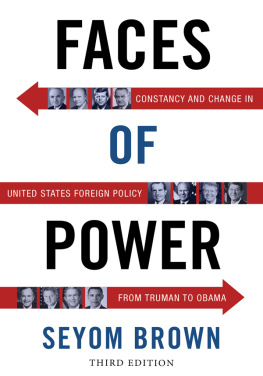DYING TO FORGET
DYING TO FORGET
OIL, POWER, PALESTINE,
& the Foundations of
U. S. Policy in the Middle East
IRENE L. GENDZIER
COLUMBIA UNIVERSITY PRESS NEW YORK
Columbia University Press
Publishers Since 1893
New York Chichester, West Sussex
cup.columbia.edu
Copyright 2015 Columbia University Press
All rights reserved
Library of Congress Cataloging-in-Publication Data
E-ISBN 978-0-231-52658-6
Gendzier, Irene L.
Dying to forget : Oil, power, Palestine, and the foundations of U.S. policy in the Middle East / Irene L. Gendzier.
pages cm
Includes bibliographical references and index.
ISBN 978-0-231-15288-4 (cloth : alk. paper) ISBN 978-0-231-52658-6 (ebook)
1. United StatesForeign relationsMiddle East. 2. Middle EastForeign relationsUnited States. 3. United StatesForeign relations1945-1953. I. Title.
DS63.2.U5G429 2015
327.7305609' 044dc23
2015016376
A Columbia University Press E-book.
CUP would be pleased to hear about your reading experience with this e-book at .
COVER IMAGE: Map no. 103.1(B) February 1956 / United Nations
COVER DESIGN: Martin Hinze
References to websites (URLs) were accurate at the time of writing. Neither the author nor Columbia University Press is responsible for URLs that may have expired or changed since the manuscript was prepared.
For Assaf J. Kfoury
Contents
This work has been under way since at least 2008. Research for it was undertaken while I was Professor in the Department of Political Science at Boston University. During this period, I was also fortunate to be an Affiliate in Research at the Center for Middle Eastern Studies, Harvard University, and a Research Affiliate of the MIT Center for International Studies.
I am grateful for the opportunity to thank those whose assistance and support have been indispensable to the research and writing of this book, for which I remain solely responsible. Individuals are identified by the positions they held at the time they provided assistance.
First to be listed are the archivists and librarians who generously shared their knowledge and made U.S. records and presidential papers accessible. It is difficult to exaggerate the importance of their assistance; quite simply, without it this work, as I conceived it, would not have been possible. Second is the list of individuals and institutions that invited me to share my findings and enabled me to benefit from the questions and criticisms that followed. Third are those whose generous assistance and moral support made a great difference to my understanding of various aspects of U.S. policy and Israeli and Palestinian development. Some shared their own work, which opened doors that proved significant to my research. Others offered critical insights based on their knowledge of different aspects of postwar U.S. foreign policy. Others were helpful in posting my articles and essays at online sites and in publications such as the Israel Occupation Archive (IOA), ZNet, Le Monde Diplomatique, and Bidayat (Beirut). Still others include present as well as former graduate students, many now successful professionals, who in sharing their own work enriched mine. Unnamed in the list below are the many whose supportwhether from near or fargave me the courage to persist in the effort to make sense of the policies and politics
Reflecting on the named and the unnamed is a reminder of the extent to which the production of knowledge takes place in a social context, no matter how solitary is the task of writing and research.
The archivists and specialists at the Harry S. Truman Library and Museum were quite simply indispensable. Jim Armistead, Archivist Specialist, who guided me through the papers of Max W. Ball, Clark M. Clifford, and Ralph K. Davies, was not only consistently helpful and instructive but supportive of my research. In addition, Elizabeth Carrington, Archivist at the Harry S. Truman Presidential Library, provided critical assistance in President Trumans correspondence with Jacob Blaustein. Archivist-Librarians Ted Benicoff, of the Seeley G. Mudd Manuscript Library, at Princeton University, and Scott S. Taylor, the Manuscripts Processor at the Georgetown University Library, Special Collections Research Center, were similarly generous in providing information on their respective holdings. Nicole Toutounji, UNICEF Photography, Division of Communication at the United Nations, informed me about the Archival Reference Services Unit and the online database of UN documents related to Palestine, including those bearing on 1948. Correspondence and additional findings from related research efforts are incorporated in the body of the text.
The Government Documents section of the Harvard College Library at Lamont, part of Harvard University, also proved to be an indispensable resource to which I repeatedly returned and on whose expert librarians I relied. Among them were John A. Collins, Reference Librarian, Research Services, Government Documents; Vida Margaitis, Government Documents, Harvard College Library; Odile Harter, Research Librarian at the Harvard College Library; and John Baldisserotto, Data Reference Librarian, Harvard College Library.
At MIT, Bethanie Pinkus helped me to locate the papers of Freda Kirchwey through Institute Archives and Special Collections, and I also turned to the collection at the Schlesinger Library of the Radcliffe Institute. At Columbia University, Jerry Breeze, Government Information Librarian of Lehman Library, made it possible for me to examine the papers of James McDonald in the Rare Book and Manuscript Library in Butler Library.
Presentations, lectures, and workshops were offered at the Middle East Institute, Columbia University; Department of Political Science, Boston University; The Middle East Center, Harvard University; the Emile Bustani Seminar, MIT; Watson Institute, Brown University; University of Maryland; Kevorkian Center for Middle East Studies, New York University; Tamiment Center, New York University; Graduate Center for Middle Eastern and Middle Eastern American Center, CUNY; and a seminar in the Department of Political Science, American University of Beirut.
Among the many individuals whose work and, in some instances, personal assistance, made a difference are Andrew Bacevich, Nathan Citino, Peter Dimock, Alain Gresh, Rashid Khalidi, Philip Khoury, Michael Klare, Zachary Lockman, Karim Makdisi, David Painter, Robert Vitalis, the late Eric Rouleau, Sara Roy, Steve Shalom, Yair Svoray, Salim Tamari, Fawwaz Traboulsi, and Walid Khalidi, whose pioneering work on 1948 remains unparalleled. Noam Chomsky holds a special place in this study not only because of his support for this undertaking but because his own work on Israel and Palestine has long served as an example of his courageous search for truth, which remains a permanent source of inspiration.
Editor Anne Routon was witness to the different stages of this work in progress and remained patient and steadfast in her support, as did other members of the Columbia University Press editorial staff, including Whitney Johnson, Roy Thomas, Michael Haskell, and Ben Kolstad, for which I am grateful.
GAZA 2014 AND 1948
I completed this study in 2014 in the midst of the Israeli invasion of Gaza. Those familiar with the distant origins of the present conflict will recall the events of 1948.
As in past Israeli invasions of Gaza, in 2008 and 2012, the 2014 war in Gaza was enabled by U.S. support. In the summer of 2014, the National Security Agency (NSA) disclosed that Israeli aggression would be impossible without the constant, lavish support and protection of the U.S. government, which is anything but a neutral, peace-brokering party in these attacks.

